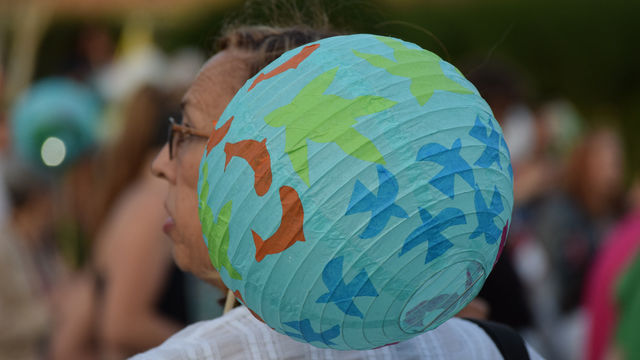Climate change impacts all of us
The consequences of climate change are visible to me every day as a Southern California resident and an African American.
The climate change crisis
It is (or should be) common knowledge that the state of California has experienced record droughts and heatwaves for the past 20 years.
Our location and dense population have moved climate change out of the political realm and into the living rooms of everyday folks who feel the consequences of climate change. I, like every Southern Californian, live with seemingly perpetual drought, the threat of heat-related illness and devastating fires for half of the year. The heatwaves are particularly dangerous to those among us who are most vulnerable: the elderly, children and the unsheltered.
The ocean is getting warmer, which leads to warmer winds blowing off the coast and reducing the rainfall we would normally get.
Those warm winds have also made it much more difficult to fight wildfires. The 2018 California wildfire season was the worst recorded ever! And climate scientists and meteorologists predict that fires such as the Camp Fire, which left 86 dead and $16.5 billion in losses, are going to become more and more common.
It is also important to note that African American, Latinx, Indigenous, and poor people are the most likely to live in the areas most impacted by severe weather, and therefore deal with the consequences of climate change every day.
Whether they are agricultural workers in the Central Valley, low-income families who live in housing near industrial facilities, or in housing without air conditioning, my communities are disproportionately impacted. Therefore, I am too.
Doers of the word
And while all of these statistics can feel overwhelming, discouraging and hopeless, my faith in Christ gives me a wellspring of hope that we can stem the tide of global climate change. Christian hope is the midpoint between presumption and despair, it does not assume the miraculous or wait for the end times. Christian hope requires that we be “doers of the word and not only hearers who mislead themselves." (James 1:22)
So, what am I doing, what do I think fellow United Methodists can do?
Personally, I have become a vegan, which dramatically reduces the carbon footprint I produce from food. I support local farmers and buy local foods when I can. I reduce my consumption of goods by buying used items.
Professionally, my writing centers on the theo-ethics of environmental justice, and I am the co-chair of the Religion and Ecology group of the American Academy of Religion. I am committed to helping people recognize the connection between and theological and ecological beliefs.
And most importantly, I am just a regular person. Imagine what could happen if everyday folx in the economically wealthy nations took global climate change seriously enough to change our lifestyles? I have faith that we — regular people, not our politicians — can create the change we need to have for the human race to survive.
This is not to say that climate policy is not political policy. Rather, I believe that we need a theologically-informed grassroots movement that lives out our theo-ethical commitment to care for creation. A movement that pushes our government to act in ways consistent with our ecological beliefs.
This is what all United Methodists should be doing — living in ways consistent with our Christian vocation to care for God’s Creation by reducing our carbon footprint and encouraging our congregations to do the same.
